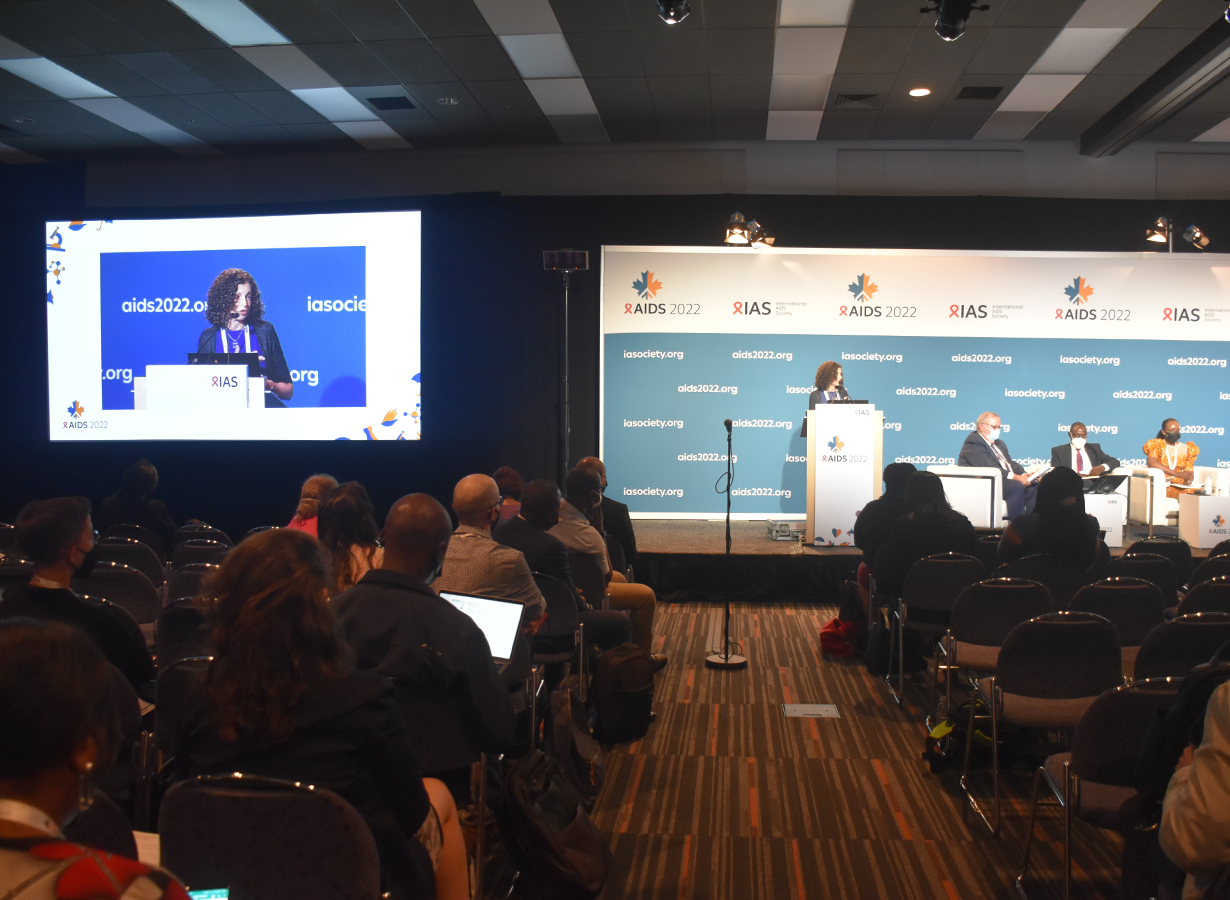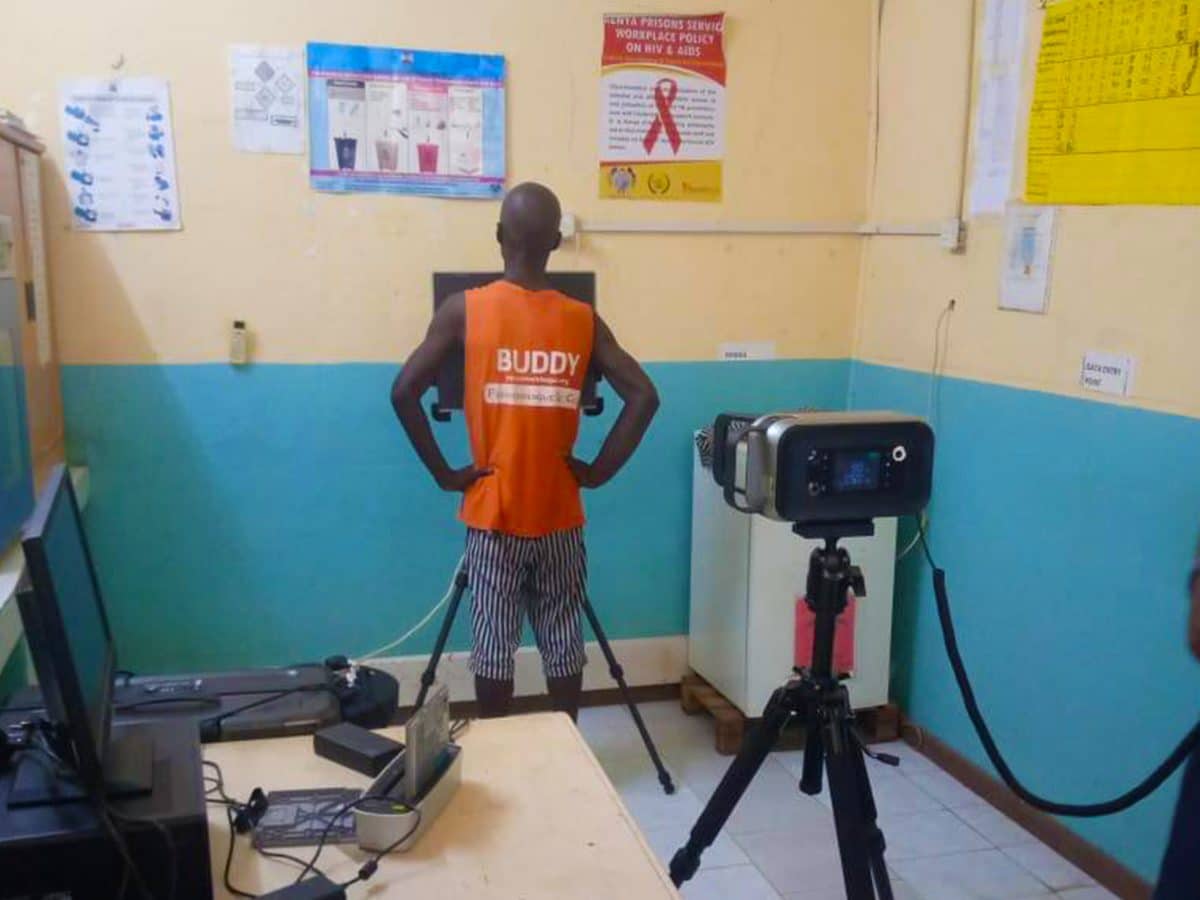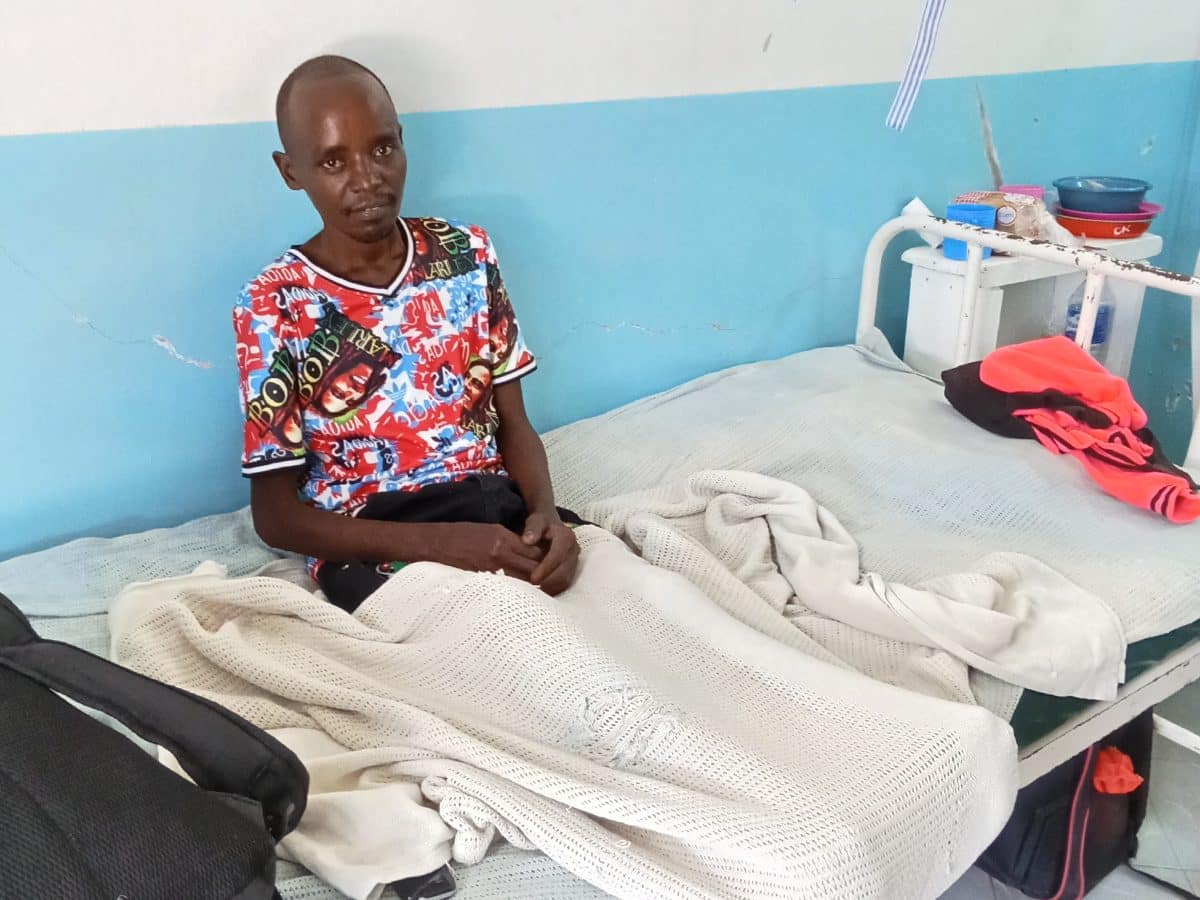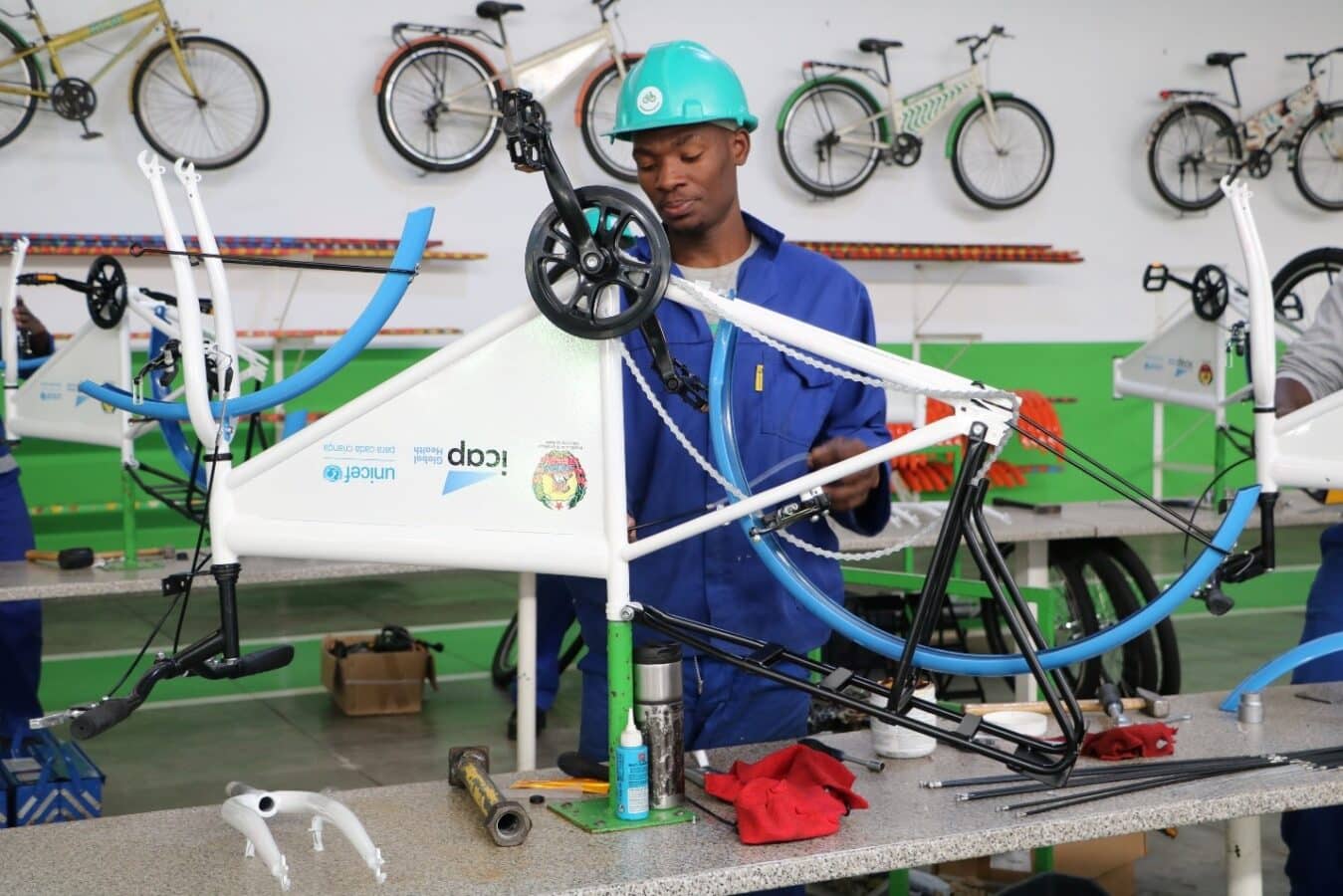Designing high-impact HIV testing and treatment services and including special populations in HIV clinical trials to accelerate epidemic control were some of the themes ICAP explored at the 24th International AIDS Conference (AIDS 2022), held from July 29 to August 2, 2022, in Montreal, Canada. At the five-day conference, ICAP organized and participated in several satellite sessions, including pre-conference, global village, and oral abstract sessions, and presented over a dozen posters highlighting ICAP’s HIV work from projects and programs worldwide.
At a global village session that explored critical questions on implicit bias in HIV and AIDS clinical research for people who inject drugs, Wafaa El-Sadr, MD, MPH, MPA, ICAP’s director, highlighted the importance of health equity and inclusion in HIV prevention strategies for different population groups. “We need to think carefully about how we tailor our response and research to populations as we try to advance HIV prevention,” she said. “We need to integrate biomedical interventions with behavioral and structural interventions to meet people where they are,” El-Sadr said, pointing to ICAP’s participation in the INTEGRA study.
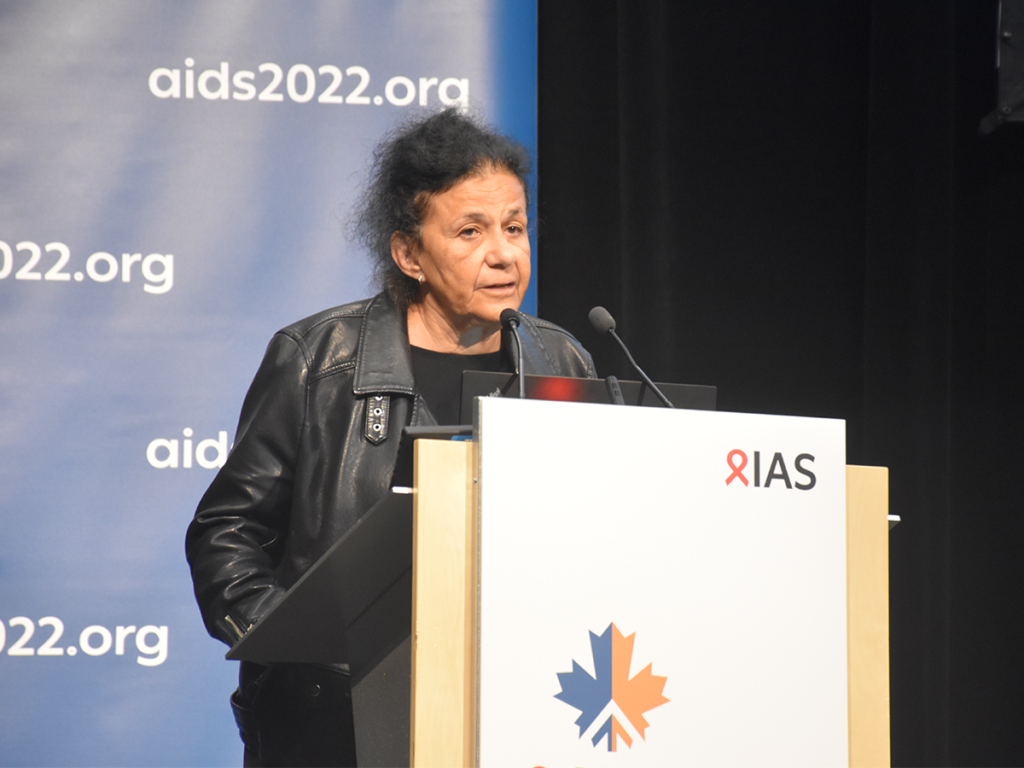
Wafaa El-Sadr giving a presentation on the importance of inclusion of people who use drugs and people who inject drugs in HIV clinical trials at AIDS 2022
ICAP further explored the inclusion of people who inject drugs in HIV care, treatment, and research, in the satellite session Differentiated Service Delivery for People Who Inject Drugs in Africa. ICAP’s HIV learning network, CQUIN, organized the session in collaboration with FHI 360’s Meeting Targets and Maintaining Epidemic Control (EpiC) project, the South-to-South HIV Prevention Learning Network, and the International Network of People Who Use Drugs (INPUD). Panelists provided perspectives and case studies that explored tailored harm reduction services, emerging trends, and models in HIV service delivery, including challenges and barriers to HIV prevention programs for people who inject drugs.
-
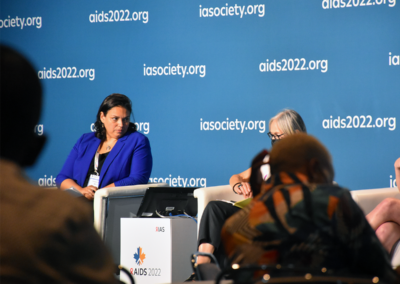
Cassia Wells, ICAP senior technical advisor, session moderator
-
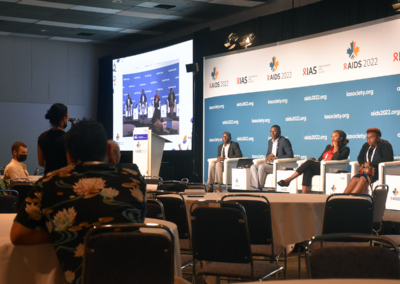
Q&A on case studies moderated by Moses Bateganya, FHI 360 (left)
-
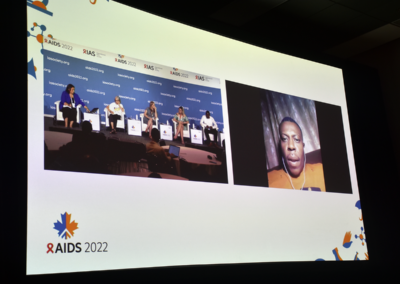
Titus Ndukong, INPUD member joins the panel discussions virtually from Cameroon
-
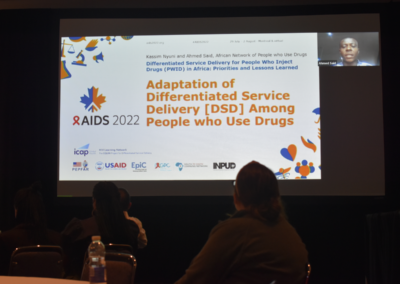
Ahmed Said INPUD gives his presentation virtually
-
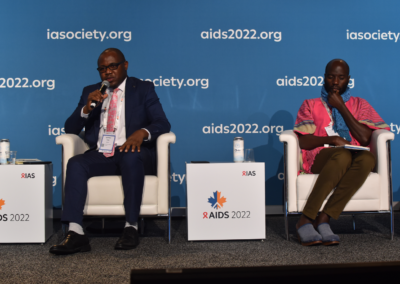
Geoffrey Taasi, Uganda MOH (left) and Jeffrey Walimbwa, ISHTAR Kenya (right) at a CQUIN satellite on differentiated testing services
-
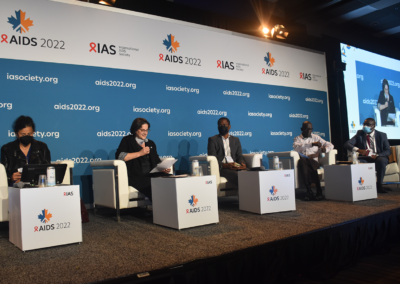
Miriam Rabkin, ICAP's director for Health Systems Strategies co-moderates a CQUIN satellite on advanced HIV disease
At a TRACE (Tracking with Recency Assays to Control the Epidemic) project satellite session co-organized by ICAP, the University of California, San Francisco, and the U.S. Centers for Disease Control and Prevention (CDC ), presenters shared country experiences with recency testing data. Suzue Saito, PhD, MIA, MA, ICAP’s director for Strategic Information, and Tania Tchissambou, MD, clinical and technical director for ICAP in Democratic Republic of Congo (DRC), presented case studies on how recent infection data improved and strengthened HIV programs in Eswatini and the DRC by complementing other health data systems. “Recency testing provides more granular data; you get more information on demographic groups, geographic locations, and key populations. This data helps focus resources in a way that is more useful for differentiated service delivery,” said Jessica Justman, MD, ICAP’s senior technical director and principal investigator of the TRACE project at the satellite.
-
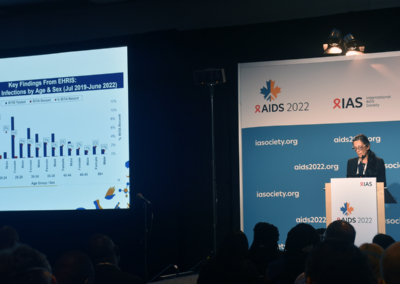
Suzue Saito, ICAP director for Strategic Information presents case study on TRACE in Eswatini
-
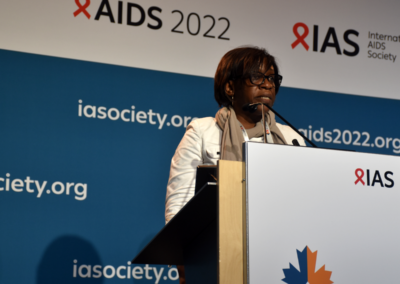
Tania Tchissambou, clinical and technical director for ICAP in Democratic Republic of Congo presenting results from TRACE study in DRC
-
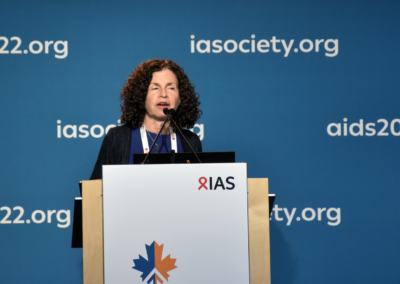
ICAP's Jessica Justman, at the TRACE satellite
ICAP also participated in the launch of a new Journal of the International AIDS Society (JIAS) special issue, which offers critical insights and discusses approaches to include pregnant women in new HIV drug trial research. The new supplement is a culmination of discussions from a year-long workshop led by the World Health Organization (WHO) and the International Maternal Pediatric Adolescent AIDS Clinical Trials (IMPAACT) Network to accelerate research on new HIV drugs in pregnant and breastfeeding women. The supplement informs and outlines significant steps for HIV researchers to close the gaps in HIV clinical research for women in order to accelerate HIV epidemic control. Elaine Abrams, MD, ICAP’s senior research director, and Jennifer Zech, MSc, ICAP senior project officer, provided valuable support to the publication, which officially launched at an AIDS 2022 satellite. “Dedicated pregnancy safety studies assessing pregnancy and infant outcomes must be conducted for all new antiretroviral agents for expected broad use in pregnant people,” Abrams said at the launch.
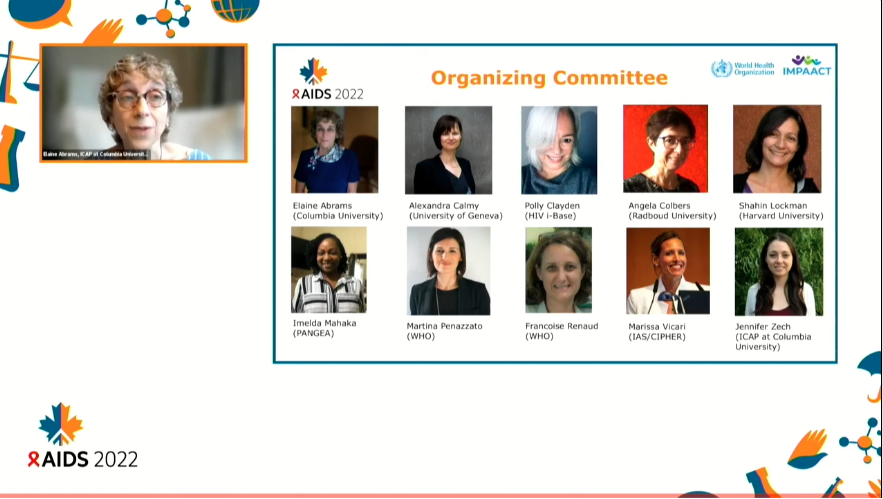
In addition, ICAP contributed to several oral abstract sessions, poster and e-poster presentations, and a photo exhibition showcasing how people-centered models are engaging and re-engaging communities.

Some of Hugh Siegel, ICAP’s Director of Communications and Content’s work on display at an AIDS 2022 photo exhibition
At the 14th International Workshop on HIV Pediatrics from July 27-28, where Abrams co-chaired the workshop, ICAP presented five posters showcasing ICAP’s research work on HIV in young people from Burundi, Kenya, Nigeria, and Zambia
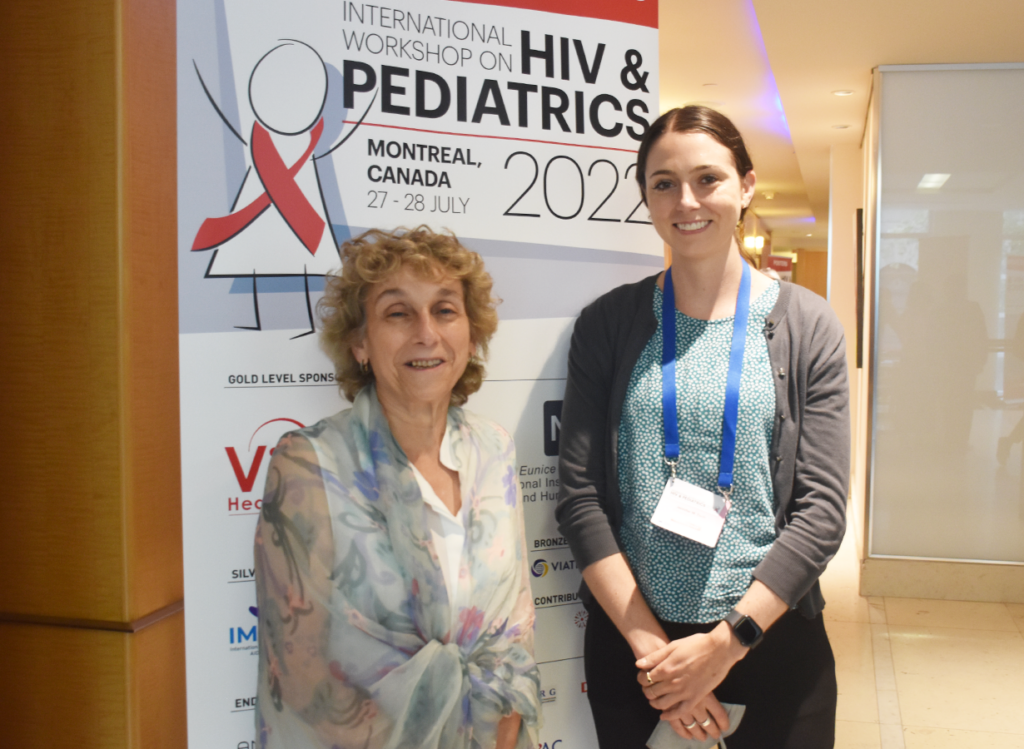
Elaine Abrams and Jennifer Zech representing ICAP at Peds 2022
Details and a complete list of ICAP posters and presentations at AIDS 2022 are online and available for conference delegates and IAS members. Recordings will be made available to the general public on October 4, 2022.
About ICAP
A major global health organization that has been improving public health in countries around the world for nearly two decades, ICAP works to transform the health of populations through innovation, science, and global collaboration. Based at Columbia Mailman School of Public Health, ICAP has projects in more than 40 countries and is working side-by-side with ministries of health and local governmental, non-governmental, academic, and community partners to confront some of the world’s greatest health challenges. Through evidence-informed programs, meaningful research, tailored technical assistance, effective training and education programs, and rigorous surveillance to measure and evaluate the impact of public health interventions, ICAP aims to realize a global vision of healthy people, empowered communities, and thriving societies.


